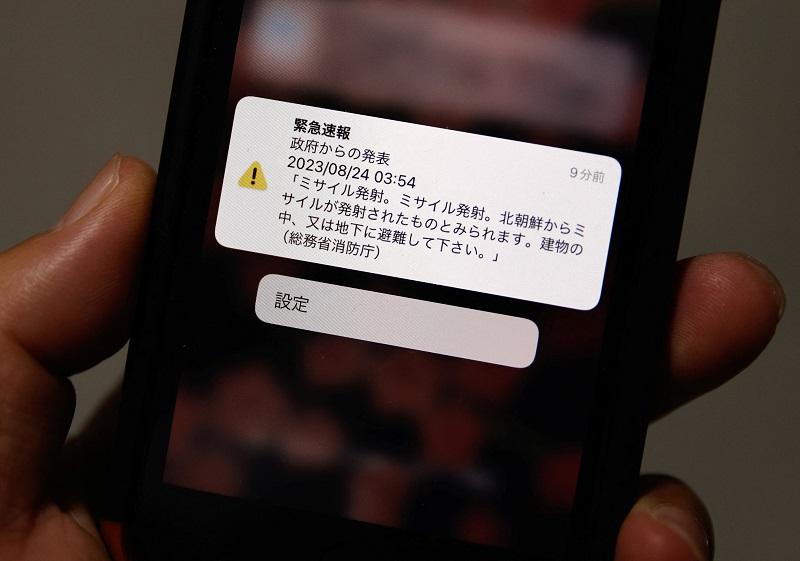North Korea launches space rocket, alarming Japan

SEOUL/TOKYO - North Korea launched what appeared to be a space rocket on Thursday, South Korea's military said, in what would be the North's second such attempt this year after a May launch crashed.
The nuclear-armed country has been seeking to place what would be its first military spy satellite into orbit, saying it eventually plans a fleet of satellites to monitor moves by U.S. and South Korean troops.
The launch prompted an emergency warning in Japan just before 4 a.m. local time (1900 GMT) over the J-alert broadcasting system, telling residents of the southernmost prefecture of Okinawa to take cover indoors.
About 20 minutes following the alert, the Japanese government followed up with a notice that the missile had passed through towards the Pacific Ocean and lifted the emergency warning.
In a televised press conference, Japanese Chief Cabinet Secretary Hirokazu Matsuno said the repeated missile launches were a threat to regional security.
"We will strongly protest against North Korea and condemn it in the strongest possible terms," he said.
A U.S. official, speaking on condition of anonymity, confirmed the U.S. military was aware of the North Korean launch but declined to offer details.
Two days ago North Korea said it would launch a satellite between Aug. 24-31.
Pyongyang has said it needs a military reconnaissance satellite to boost monitoring of U.S. military activities.
But the North's May 31 bid to launch a "Chollima-1" satellite rocket went wrong, with the booster and payload plunging into the sea. State media blamed the setback on an unstable and unreliable new engine system and fuel.
It was not immediately clear if North Korea had used the Chollima-1 again, or a new system.
"I think it's plausible that they've resolved the likely cause of the stage separation issue they apparently encountered during the initial Chollima-1 launch attempt," Ankit Panda of the U.S.-based Carnegie Endowment for International Peace told Reuters ahead of Thursday's launch.
"We've seen some static engine testing reported, which would be consistent with efforts to remediate problems related to the initial launch vehicle design."
Seoul, Tokyo, and Washington condemned the May launch as a provocation and violation of U.N. Security Council resolutions banning the North's use of ballistic missile technology.
South Korea recovered parts of that failed rocket, including the satellite payload, which it said did not appear to have military capability.
The secretive North considers its space and military rocket programmes a sovereign right, and analysts say spy satellites are crucial to improving the effectiveness of its weapons.
North Korea has had multiple attempts to launch "earth observation" satellites, of which two appeared to have been successfully placed in orbit, including in 2016.
International observers have said the 2016 satellite seemed to be under control, but there was lingering debate over whether it had sent any transmissions. — Reuters



